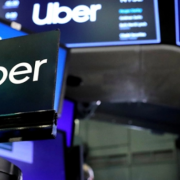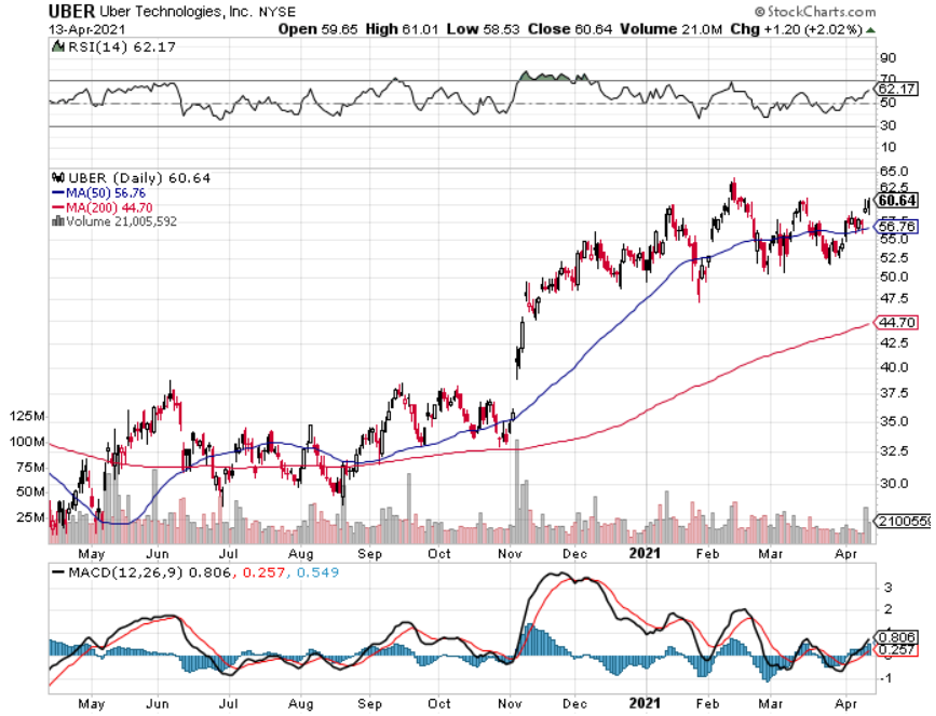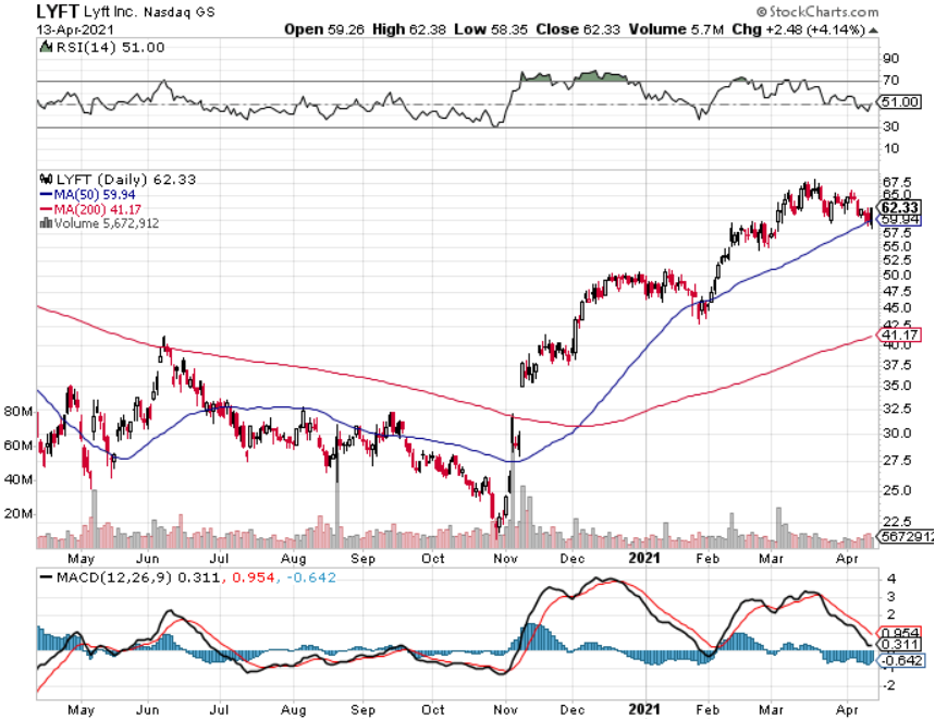A 2021 Tech Darling
Uber (UBER) is a solid tech investment for the remainder of 2021, and this is me saying that when I don’t even like their company business model.
The biggest gap up in shares usually occurs when a company goes from flat-out terrible to the level just above that and that’s what is happening to Uber in 2021.
Why have they been so bad lately?
Uber’s Mobility gross bookings, or ride-sharing revenue, was $6.8 billion, which was down 47% year on year and revenue of only $1.5 billion.
Uber was never profitable, to begin with, not even close, and for COVID to gut their main business in 2020, investing in shares became even less appetizing.
Or were they?
Ironically enough, the California ride-sharing company was able to compensate during the pandemic by delivering food, a very non-tech type of business.
Delivery revenue of $1.4 billion, up 220%, significantly outpaced gross bookings growth and delivery revenues take rate was 13.5%, up 391 basis points year on year and up 21 basis points quarter on quarter.
Not only did the delivery revenue become almost equal to its ride-sharing revenue in such a short time span, but their “take rate” nudged up which is measured as the percentage of what they accrue from each $1 in delivery.
The momentum allowed Uber to triple its shares from March 2020 lows on the back of a reinvigorated delivery service, trillions of printed money, and a broad-based rally that swept up Uber.
Trust me, Uber doesn’t own any worthwhile intellectual property that is going to differentiate itself from the competition, but they are part of a duopoly with Lyft (LYFT) that makes 2021 so intriguing.
Reading the 2021 tea leaves, it's hard not to love this company as tourism, outdoor mobility, and intercity mobility will reverse and people will start paying uber for rides to go to bars and house parties.
Uber indicated just that with a teaser report before the real earnings come out showing that total gross bookings as of March 2021 reached the highest monthly level in the company's nearly 12-year history.
Mobility posted its best month since the pandemic started in March 2020, passing a $30B annualized gross bookings run rate. Average daily gross bookings were up 9% month-over-month.
Delivery set another all-time record, crossing $52B annualized gross bookings run rate in March, up over 150% on the year.
Uber says the rideshare business recovery and continuing Eats demand have customers outpacing the number of drivers and couriers.
The company ended the Form 8-K on a down note, letting investors know that after a court order, Uber must reclassify UK drivers as employees.
The company expects to record a “significant accrual” due to higher British employment costs in Q1 with the majority expected to reduce total and mobility revenues and revenue take rates but will be excluded from adjusted EBITDA results.
I must say that it’s quite irresponsible of management to just slide this “significant accrual” off the balance sheet as it could turn into something major if other big markets similar to London force Uber to reclassify workers as employees.
This is by far the biggest risk moving forward in 2021, but I doubt that other European locales will have the balls to say no to Uber.
Management reiterated that they remain on track to turn the EBITDA profitable in 2021, but then again, the EBITDA is quite substantial which is a management trick that needs to be banned in corporate America.
I believe that management keeps moving the goalposts by trying hard to please the incremental investor with alternative metrics, but that doesn’t take away from the immense potential of the back half of 2021.
Uber is poised to seriously outperform as people have been quarantined inside for over a year now and are waiting to explode out of their front door.
The company has burnt through over $15 billion in cash since 2019 and the stock has tripled, after stripping out a decline in food deliveries later this year, I believe the strength in rideshare revenue will end up with Uber having some quite rosy numbers.
Call it a net positive after you minus out the delivery revenue which is poised to shrink in the latter half of the year.
Thus, I will stamp Uber with a short-term and medium-term conviction buy, but a long-term sell because I just don’t see a pathway yet to become a heavy hitter, and Uber’s accounting gimmicks are a red flag.






